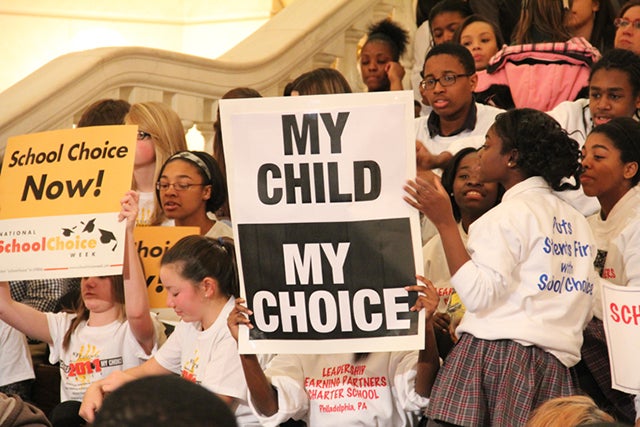Now, even the federal government is getting further into the school-choice game.
New legislation, called the CHOICE Act, would expand the D.C. Opportunity Scholarship Program, which provides tuition assistance for low-income children to attend private schools, create a pilot voucher program for children in military families and allow federal money for special education to follow children to private schools if their state has a private school-choice program.
The legislation, introduced in the U.S. House of Representatives by Rep. Todd Rokita, R-Ind., and Sen. Tim Scott, R-S.C., in the Senate, would reverse a disturbing trend in the federal government’s relationship with local schools.
“Increasingly, a lot of the federal role [in education] has come with mandates and centralized bureaucracies,” said Michael McShane, research fellow in education policy studies at American Enterprise Institute. “These bills … allow states and families flexibility in how those [federal] dollars are used.”
Most school-choice policy occurs at the state level, in part because 90 percent of education funding is state and local, and only 10 percent comes from the federal government.
“There are different ways folks on the Hill are thinking about how they advance school choice in a way that is appropriate for federal policymakers, and this is one of those areas where I think they get it right,” said Lindsey Burke, Will Skillman Fellow at The Heritage Foundation.
“I think it’s all smart policy. If you have an existing federal program and give states flexibility in how they spend the money, you’re far more likely to see those dollars well spent than if you filter them through the bureaucracy of the federal department.”
The National School Boards Association opposes the bills.
“NSBA opposes private school vouchers and urges Congress to reject using any federal funds or incentives for a national voucher program, including any special education vouchers for military children and/or specific subgroups of students,” NSBA executive director Thomas Gentzel wrote in a letter to U.S. representatives.
The National Education Association and American Federation of Teachers were not immediately available for comment.
